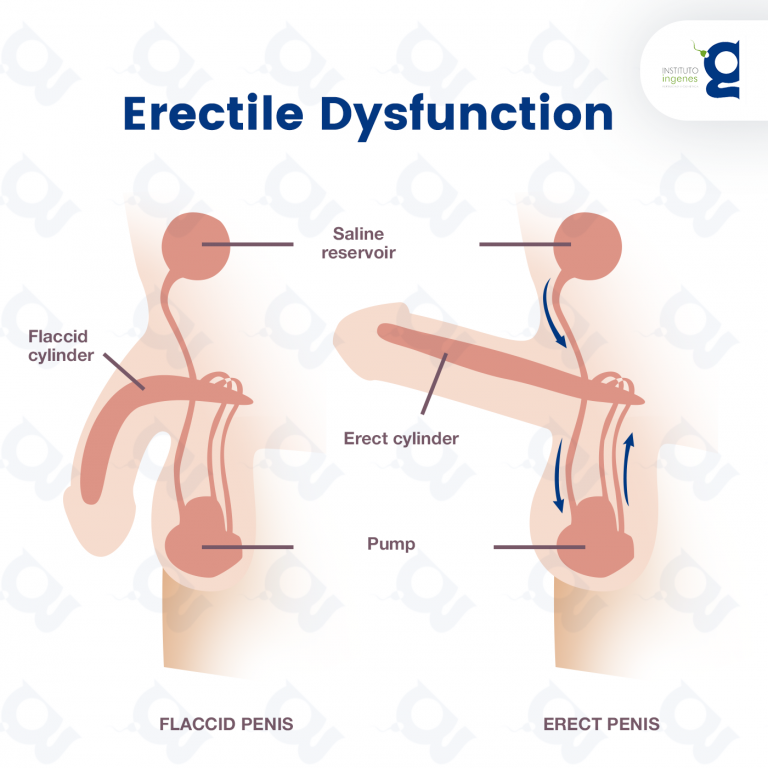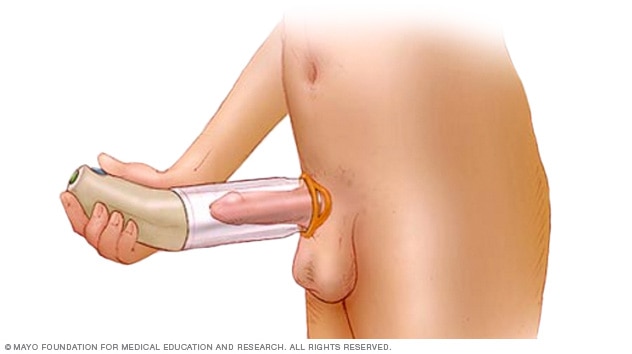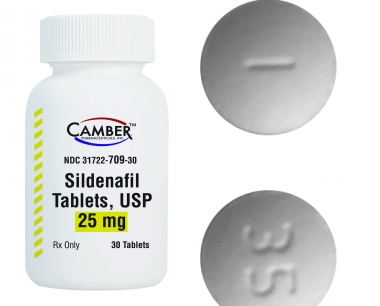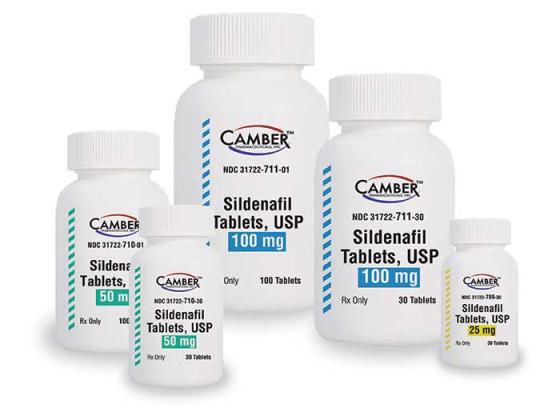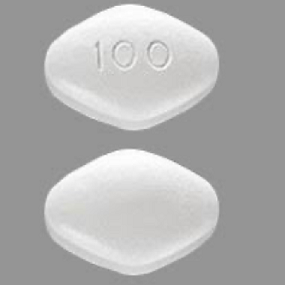Viagra is for adult men seeking to treat impotence, or erectile dysfunction. ED is the lack of blood flow to the penis, making it impossible to achieve or maintain an erection for long enough to have satisfactory intercourse. ED can happen due to age, a medical condition or it can be psychological.

Erectile dysfunction is often an embarrassing issue for those who suffer from it and can have many negative effects. Erectile problems can lead to stress in relationships, low self-esteem, and a decreased sex drive. Viagra (Sildenafil) can be an effective treatment for erectile dysfunction if taken correctly, as instructed by a doctor.
Often, men suffering from ED have already tried non-medical remedies to treat it, such as changing their diet, increasing exercise and reducing stress before deciding to seek medical treatment such as Viagra. If you have decided that Viagra is the right option for you we advise you to request a prescription through a doctor to ensure you take the right dosage.
Viagra works alongside sexual stimulation to achieve an erection. When a man becomes aroused something called cyclic GMP is released. This causes the blood vessels to relax and expand and more blood to enter the penis. The result of this is an erection. Cyclic GMP is broken down by an enzyme known as PDE5. Viagra (Sildenafil) works to stop this break down occurring and therefore helps maintain the erection.
Maintaining a healthy sex life is important for psychological and physical well-being. Viagra is an aid for men who have insufficient blood flow to the penis and therefore problems having sex.

When using ED pills, you should be aware of potential risks. Keep in mind that the uncontrolled use of sildenafil medication (for example, when using the drug in excessive doses, or more frequently than recommended, or when the drug is combined with other ED medications from Canadian Pharmacy or narcotic substances) can lead to a condition known as priapism.
It’s a long-lasting painful erection that needs medical help. Priapism is a disease named after the mythical ancient Greek god of fertility Priapus, who had a permanent erection. If a man has priapism, his erection has nothing to do with sexual arousal and the penis does not relax even after ejaculation and after a while it becomes painful. This condition can seriously damage the penis as it can cause blood stasis.
If your erection lasts for more than 4 hours and you feel pain, you should contact your doctor immediately.
In rare cases, Viagra can cause negative effects but they are unlikely to be long-lasting. The common side effects associated with the use of this medication include headache, redness of the face, hot flashes, dizziness, vision problems, sensitivity to light, nasal congestion, and stomach upset.
To avoid side effects of any kind, you should consult a doctor prior to taking these pills. You should be informed that sildenafil medication should not be used in combination with nitrates (medicines used to treat angina pectoris), as this can lead to a severe drop in blood pressure levels, which can lead to shock and sometimes even death.

In 2020, Viagra is considered safe when prescribed correctly.
Important: Prolonged use of ED pills can worsen the fertilizing potential of ejaculate and cause dependence (if you abuse stimulant drugs, one day an erection may simply not come). This is a crime against yourself. There is no need to risk health (and sometimes life). If you take ED medication in the recommended doses and do not abuse it, it won’t harm your health in any way!

The Effects of Viagra on the Body
Viagra is a powerful drug that increases blood flow to the penis so you can get and maintain an erection. It’s effective, but it can also cause some side effects.
Viagra is a brand-name version of the generic drug sildenafil. It’s a phosphodiesterase type 5 (PDE5) inhibitor. PDE5 is an enzyme that regulates certain chemicals in your blood, but as a result can make it harder for you to get and keep an erection.
Viagra is used to treat erectile dysfunction (ED). While it helps you temporarily maintain an erection so you can have sex, it doesn’t cure ED. It doesn’t affect sexual desire either. You still need mental or physical stimulation to get an erection.
This medication is only available with a doctor’s prescription.
Circulatory system
It takes a finely choreographed series of events to produce an erection. It begins with arousal signals from your brain, and it all hinges on good blood flow to the penis.
Within the penis are two chambers called the corpora cavernosa. Nitric oxide (NO) is released in the chambers during sexual stimulation. NO activates an enzyme called guanylate cyclase. That increases levels of cyclic guanosine monophosphate (cGMP), which causes muscles to relax.
The chambers also contain a network of blood vessels. When those blood vessels relax and widen, blood rushes in. The resulting pressure is what causes an erection.
PDE5 can dampen the effect of cGMP. Viagra works by inhibiting PDE5.
Viagra is rapidly absorbed into the bloodstream. Maximum concentrations are reached within about an hour.
One of the more common side effects is flushing, or redness.
This medication can also cause a decrease in blood pressure, particularly one to two hours after taking it. If you already have low blood pressure, discuss the pros and cons of Viagra with your doctor.
For most people, sexual activity is good for cardiovascular health. However, if you have cardiovascular disease, you should ask your doctor if it’s safe for you to take Viagra. You should also avoid Viagra if your doctor advised you not to have sex.
You shouldn’t take Viagra if you’ve had a stroke or heart attack or if you have unstable angina.
Certain drug interactions can harm your heart. Avoid taking PDE5 inhibitors if you also use long-lasting alpha-blockers or take medications that contain nitrates.
Reproductive system
Viagra can be quite effective, but it’s no magic pill. It does nothing for the libido. You still need some kind of stimulation to get an erection.
The effects of Viagra usually last about 4 hours, though they may last longer for some men. A rare, but serious side effect, is priapism. That’s when you get an erection that lasts for a long period of time. It can become quite painful.
If you have an erection that lasts for more than 4 hours, seek immediate medical attention.
You should also be wary of PDE5 inhibitors if you have an anatomical abnormality of the penis. If you have Peyronie’s disease, your doctor may advise against taking Viagra.
Viagra is a temporary fix and doesn’t cure ED. It offers no protection from sexually transmitted infections (STIs).
Central nervous system
Viagra helps to improve blood flow to the penis, but your brain is still your most valuable sex organ. Viagra won’t work if you’re not in the mood.
Some potential side effects of Viagra are headache and a runny or blocked nose, or a nosebleed. Some men feel lightheaded or dizzy. In rare cases, Viagra can cause fainting. Some men taking PDE5 inhibitors report back or muscle pain.
It’s not common, but some men experience ringing in the ears, hearing loss, or vision loss after taking PDE5 inhibitors.
Avoid PDE5 inhibitors if you have a history of an eye condition called non-arteritic anterior ischemic optic neuropathy (NAION). NAION is characterized by the interruption of blood flow to the optic nerve.
If you have hearing or vision loss while taking Viagra, seek immediate medical help.
Excretory and digestive system
Viagra is dispensed in a film-coated tablet. You can take Viagra with or without food, and it’s best to take it about an hour before you plan to have sex.
Don’t take Viagra more than once per day.
About 80 percent of Viagra leaves your body in your feces. The rest is washed out with your urine.
One fairly common side effect of Viagra is indigestion or stomach upset. PDE5 inhibitors can sometimes cause nausea or vomiting.
